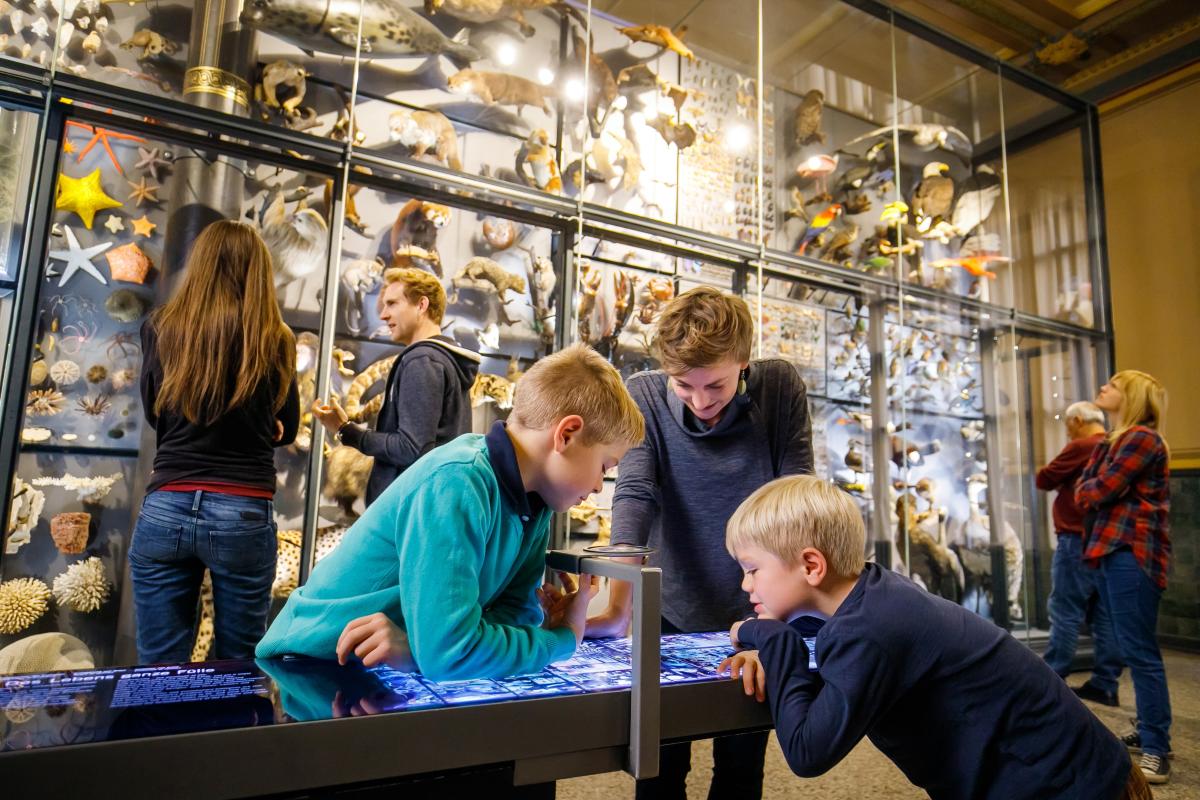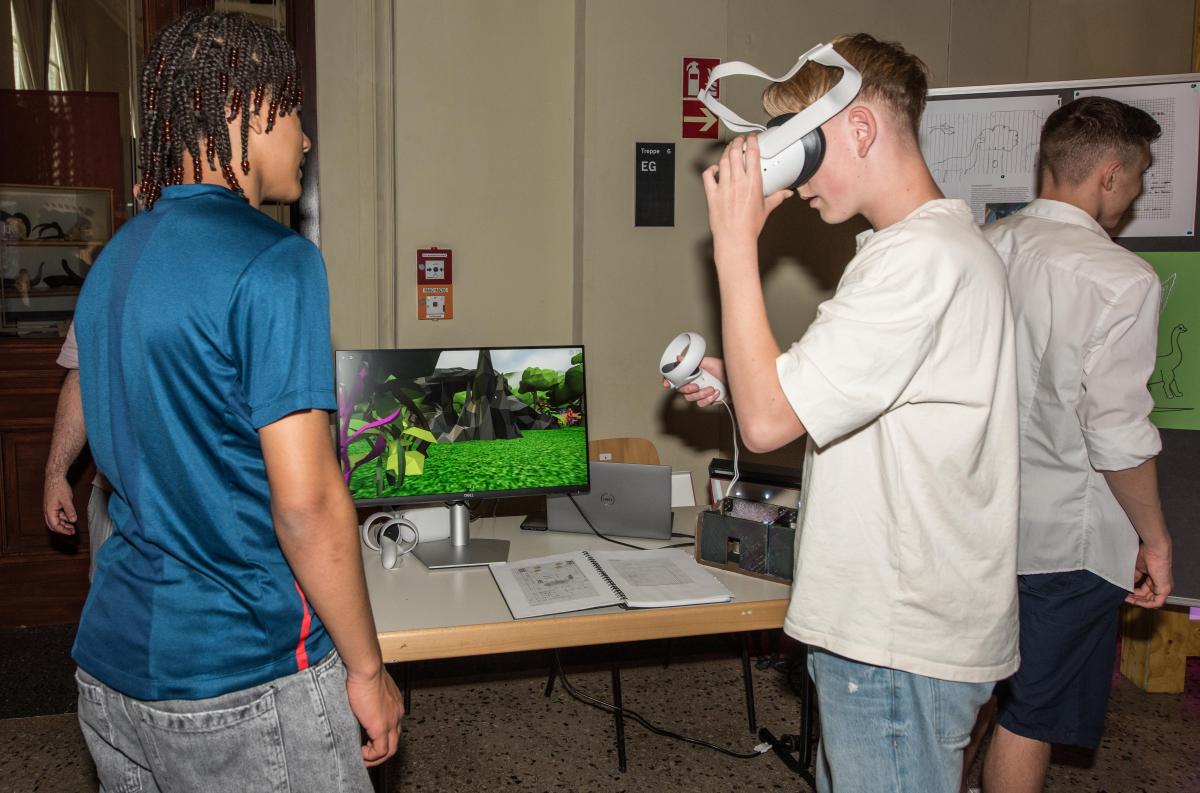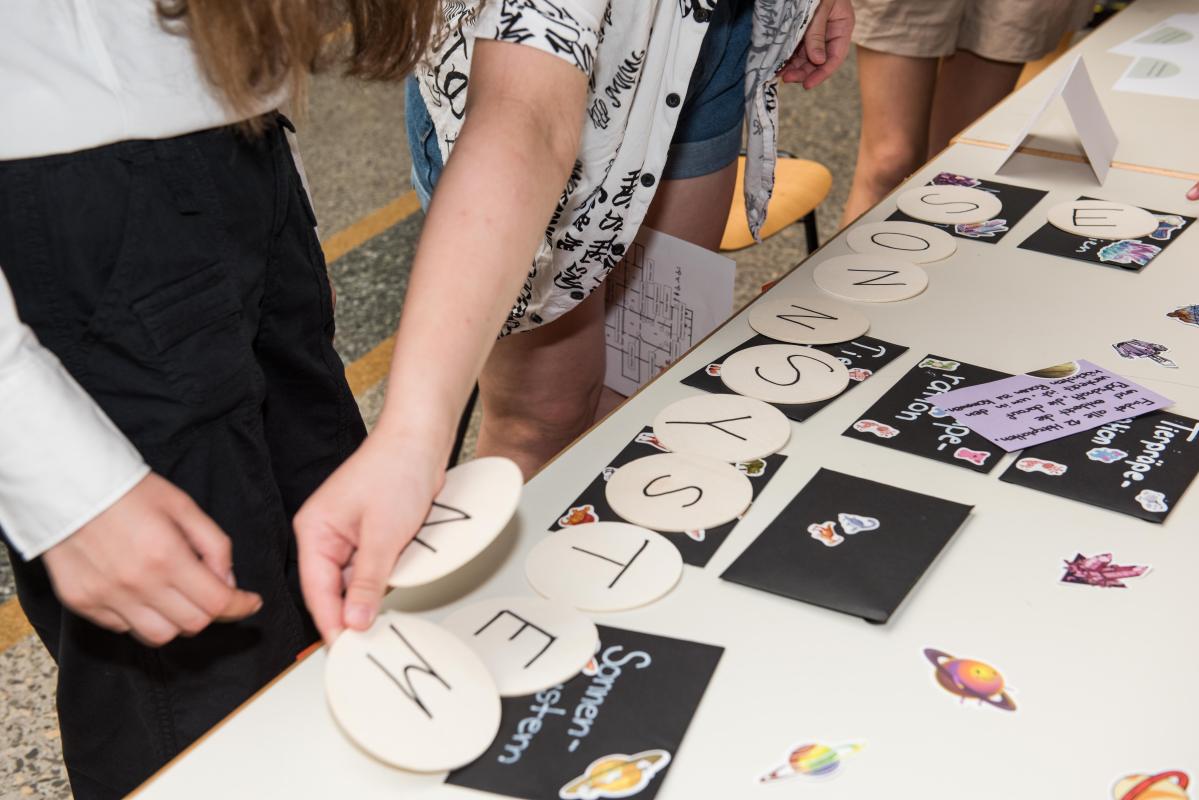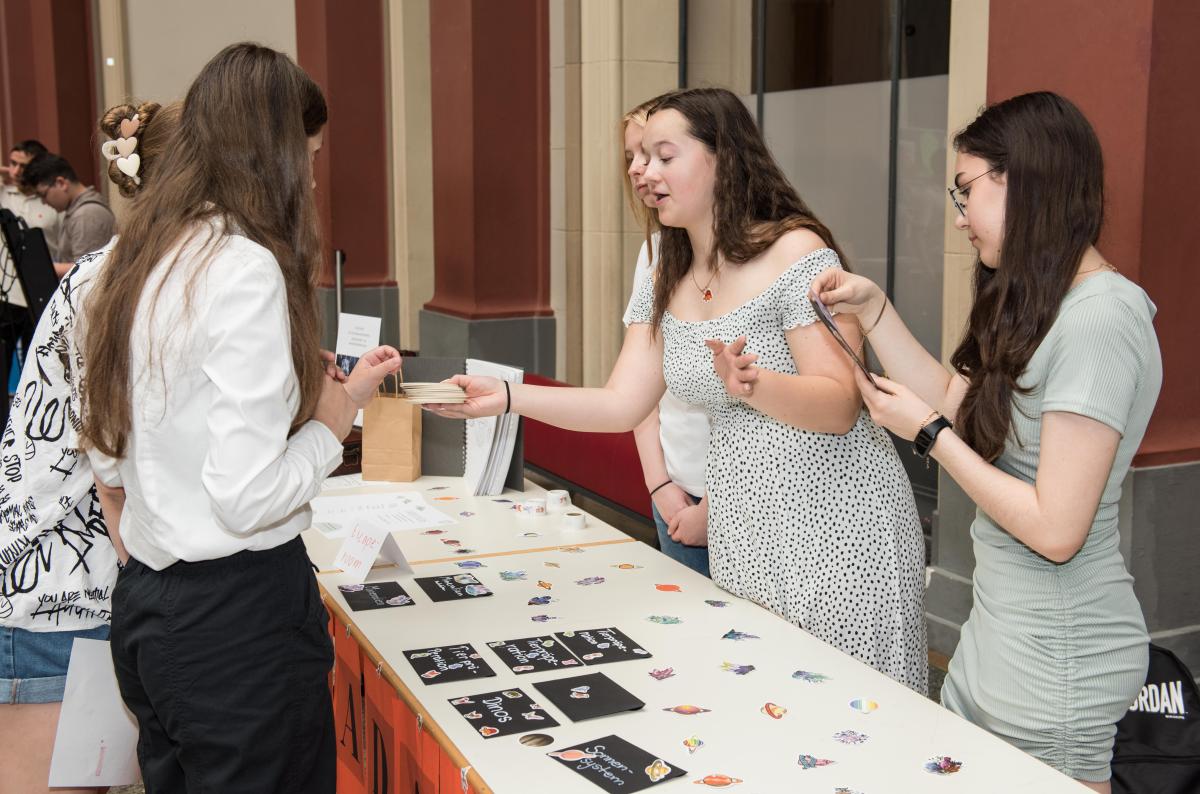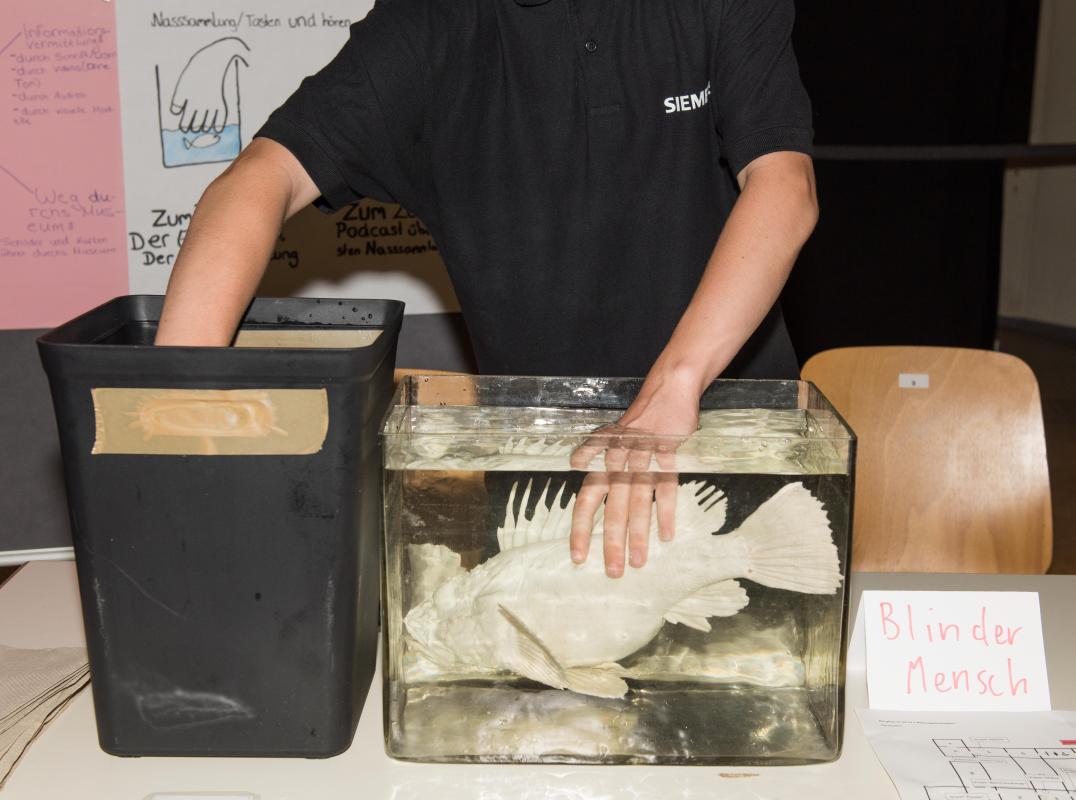The Museum für Naturkunde Berlin (MfN) is an important educational partner for the Berlin school landscape. The aim of the ‘Chancen bilden in Berlin’ project, funded by the Deutsche Telekom Foundation, is to strengthen the museum's presence in schools as an innovative, extracurricular place of learning and to anchor it firmly in school structures. To this end, an educational ecosystem is being established in which various actors (teachers, educators, museum staff, students, graduates of the Voluntary Ecological Year and pupils) learn from and with each other and contribute their individual expertise and biographies.
The focus of the project is on enabling open and participatory learning for the pupils - in the spirit of student agency. With a view to the future, the educational ecosystem ‘Museum at School’ contributes to supporting students in their process of lifelong learning and promoting their future skills.
Leitmotifs
MfN resources are to be made available to pupils and teachers, thereby supporting and complementing schools. All those involved in the project see themselves as learners and are part of the educational ecosystem. The MfN not only invites cooperating schools to repeatedly visit the museum and talk to staff, but also goes to the schools to have an impact on site.
As part of projects that accompany the school year, the museum becomes part of the (science) lessons and, thanks to its uniqueness and authenticity, enables other forms of learning, such as research-based learning or learning in a group
Since the start of the project, pupils, teachers and educators from Gustav-Falke-Grundschule and Carl-Friedrich-von-Siemens-Gymnasium have been actively involved in building the educational ecosystem. This has led to remarkable results on a wide range of topics such as dinosaurs, inclusion in the museum, behind the scenes and the solar system. In addition, a network is being established in which interested educators from other schools and extracurricular learning centres as well as from the Berlin Senate Department for Education work together and also become part of the educational ecosystem through exchange and further development.
In summer 2024, the pupils presented their results in the museum's exhibitions to museum visitors, their parents and other pupils.
‘Chancen bilden’ project programme of the Deutsche Telekom Foundation
‘Providing young people with the knowledge and skills they need for a successful life in the 21st century cannot be the task of schools alone.’ - With this central message, the Deutsche Telekom Foundation illustrates how important it is for different places of learning, such as schools, museums, libraries, makerspaces, student research centres and other educational institutions to network and work together to support students in their learning processes.
As part of this strategy, the foundation is supporting regional STEM education ecosystems at six locations in Germany in order to strengthen STEM education in Germany in the long term.
Further project results:
- Animated films TRICKMISCH
- Podcast ‘Blind Man’ (CFVS)
- Bee project (GFS)
Our partner schools:




